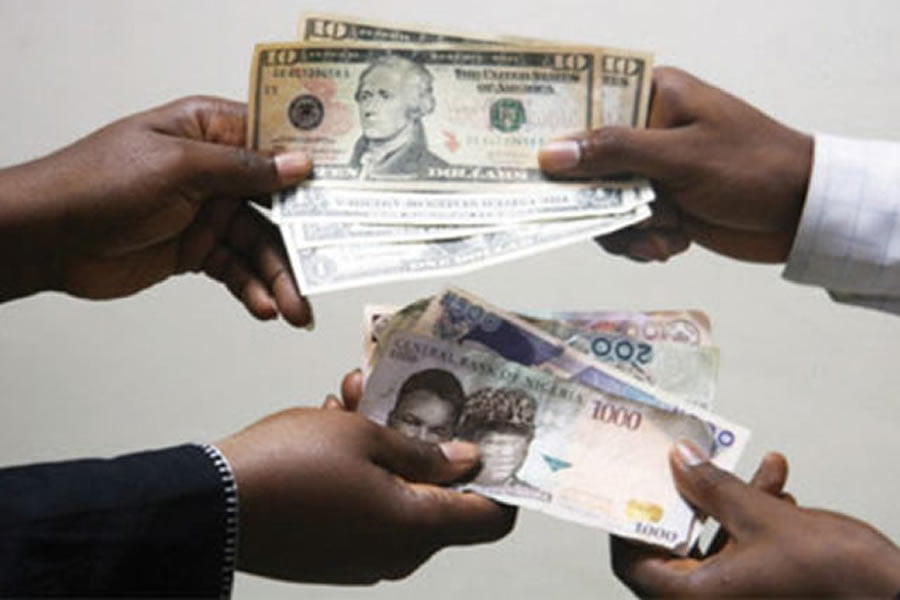The naira began the new month on a bullish note, appreciating to N1,278.58 against the United States dollar from N1,309.39 per dollar recorded last week Thursday. This indicates an increase of N30.81 at the close of trading activity.
According to data from FMDQ Securities, the indicative exchange rate for the Nigerian Autonomous Foreign Exchange Market closing below the N1,300 ceiling marks the first instance since January 26 of this year.
The naira depreciated to as low as N1,615/$1 on March 13, 2024.
Since the introduction of a slew of forex policies by the central bank, the naira has gained over 21 per cent on the dollar since March.
Liquidity in the forex market has been attributed to an array of policies currently implemented by the CBN.
Key reforms include the unification of exchange rate windows, liberalisation of the FX market, clearance of FX backlog obligations for banks and airlines, implementation of a Price Verification System, imposition of limits on banks’ Net Open Position, removal of the daily cap of N2bn on remunerable Standing Deposit Facility, and overhaul of the Bureau De Change segment.
Forex turnover is a critical metric in the financial world as it represents the total value of all foreign exchange transactions completed within a specific timeframe, providing insights into the liquidity and vibrancy of the forex market.
High turnover rates indicate a highly active market with numerous participants engaging in buying and selling currencies, which can signal investor confidence and economic stability.
In the last two weeks, the Central Bank of Nigeria and other banking institutions improved dollar supply to the foreign exchange market by $2.5bn.
Similarly, forex transactions between willing sellers and buyers at the Nigerian Autonomous Foreign Exchange Market reduced by 106 per cent to $111.18m on Tuesday from $857m at the close of trading activity last week Thursday.
The summary of the FX trading revealed that the intraday high closed at N1,312 from 1392 per dollar on last Thursday. Also, the intraday low remained at N1,250 it traded last Thursday.
The foreign exchange resumed on Tuesday after the Easter holiday with the Naira appreciating at the parallel market to N1,220. Bureau De Change operators bought at N1,220 per dollar and sold either through cash or transfer to customers at N1,265/$ with a profit margin of N30.
This represents 1.99 per cent appreciation over N1,280 closed last week.
The Naira strengthened in both the official and parallel market segments following the Central Bank of Nigeria’s move to clear all verified FX backlogs (final tranche of $1.5bn).
The Naira which appreciated by 21.8 percent month-on-month in March 2024 is expected to maintain the trend in April, following the policy measures of the Central Bank.
Currency traders, who spoke to The PUNCH attributed the naira appreciation to waned demand for the greenback note and the decision of the apex bank to sell foreign exchange to operators.
A BDC operator at Wuse Zone 4, Ibrahim Yahu, stated, “The demand for dollars has really gone down and the naira is appreciating because of the new rate determined by the CBN for traders.
The CBN initially started selling to us at N1,251 but they gave another rate last week Thursday at N1,190 and that is the reason for new fresh drop of the dollar. The CBN selling directly to us has really helped trading activities.”
Another trader, Malam Yunusa, stated that the naira was poised to maintain its gain against the dollar adding that operators also want the naira to grow.
The President of the Association of Bureaux de Change Operators of Nigeria, Aminu Gwadabe, recently noted that apart from the tightening of monetary policy resulting in interest rate hikes, increased investment in government instruments, and the clearance of $7 billion forex backlog forward commitments, the reactivation of the BDCs has notably enhanced dollar liquidity in the retail segment of the forex market.
Analyst at Afrinvest also predicted that the naira would trade within similar band in the month of April as the CBN continues its activities to mop up liquidity and attract more capital.
Punch

